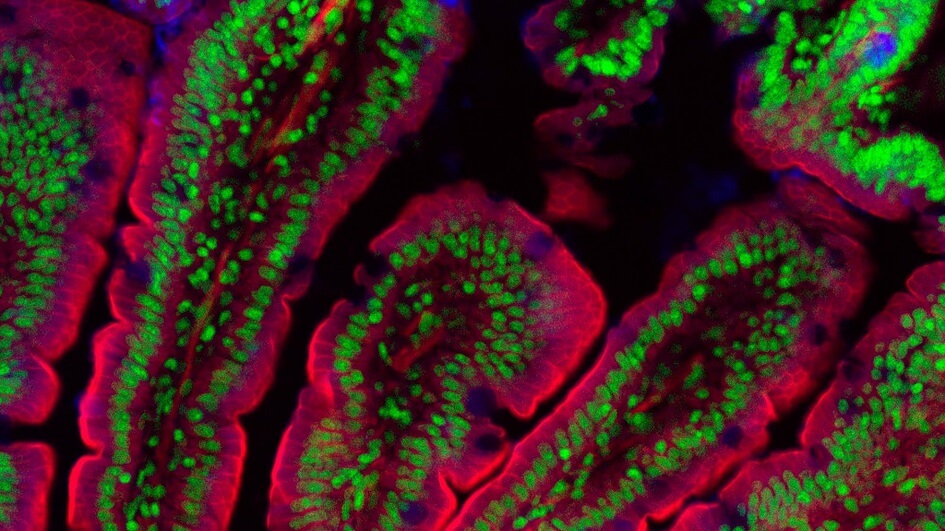Common gut bacteria can feed the growth of prostate cancer while shielding tumors from the effects of treatment, a new study finds. These so-called “gut bugs” advance prostate cancer by providing growth-stimulating androgens (male hormones.)
The standard treatment for advanced prostate cancer aims to lower the patients’ levels of androgens. Researchers reprort, however, that lowering androgen levels can stimulate the expansion of gut bacteria. The organisms produce androgens, fueling prostate cancer growth.
Scientists are finding ways to identify patients at high risk of developing resistance to treatment, but who may benefit from altering their microbiome by fecal transplants or other methods.
A team of scientists from The Institute of Cancer Research, London, the Institute of Oncology Research in Bellinzona, Switzerland, and the Swiss Federal Institute of Technology used mice and patient samples to investigate the role of gut bacteria in prostate cancer growth and progression.
Gut bacteria are usually valuable to humans. Diseases, however, can destroy the beneficial balance of the microbiome. Gut bacterial expansion and their release of toxins or other molecules can affect tumor cells.
Scientists found that getting rid of all gut bacteria in mice with prostate cancer slowed tumor growth and delayed hormone resistance. They also found that transplanting feces from mice with hormone-resistant prostate cancer into mice with low androgen levels that had not yet developed resistance encouraged tumor growth. In addition, the researchers demonstrated in mice that gut bacteria were able to make androgen hormones from precursor molecules.
Transplanting stool from prostate cancer patients with hormone-resistant prostate cancer into mice whose cancers were not resistant promoted tumor growth and hormone resistance.
Scientists also identified a specific bacterium – Ruminococcus – that may play a major role in the development of resistance. In contrast, the bacterium Prevotella stercorea was associated with better clinical outcomes.
“Our findings reveal that the initiation of hormone therapy for prostate cancer can trigger gut bugs to start producing androgen hormones. These androgens can then sustain prostate cancer’s growth and drive resistance to hormone therapy, thus decreasing survival,” explains study author Johann de Bono, a professor of experimental cancer medicine at The Institute of Cancer Research in London, in a statement.
“Excitingly, our research has identified particular signatures among gut bacteria which could indicate that some men with prostate cancer who have these gut bugs are more likely to develop resistance to hormone therapy,” de Bono explains. “The next step will be to further explore how we apply these signatures in patients, with the aim of devising tests to pick out men who would benefit from fecal transplants, antibiotic therapy, and other strategies to manipulate the microbiome. In the long-term, our aim would be to produce a yogurt enriched with favorable bacteria to prevent resistance to treatment.
“Understanding how common, good bacteria in the gut – which play a vital role in keeping us healthy – can interfere with hormone metabolism in men with prostate cancer could help us devise new treatment strategies,” he concludes.
The study, published in the journal Science, was funded by the Prostate Cancer Foundation, Movember, Prostate Cancer UK, Cancer Research UK and The John Black Charitable Foundation.
